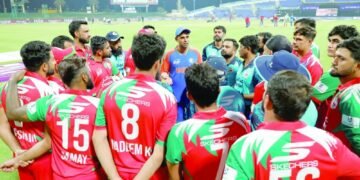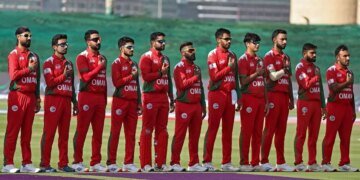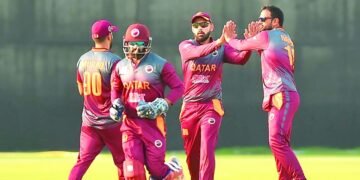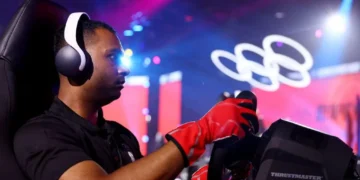In this inspiring interview with Owais Shah, we delve into the remarkable career journey of an accomplished international cricketer who has experienced both the triumphs and the challenges of professional sport. From the pivotal moments that shaped his ascent to representing England at just 21 years old to his dedication behind the scenes at the Danube Cricket Academy, he shares invaluable insights into the mental resilience required to excel.
With a passion for mentorship and a deep understanding of modern cricket, he exemplifies how perseverance, humility, and continuous learning can inspire the next generation of athletes. Join us as we explore his story of determination, growth, and giving back to the game.
The key is to understand why you failed and to fix it the next time.
Celebrating Your Career
What was the defining moment in your international cricket journey, and how did it shape you as a player?
Looking back, I guess making my international debut for England against Australia at 21 years old during the summer of 2001. The previous summer, I was dropped from Middlesex County Cricket Club’s First XI.
It was the first time I had ever been dropped—or substituted, for a better word—from any cricket team I’d been involved with up to the age of 20. I’d had a lot of success as a kid, so when the Middlesex captain told me I wasn’t going to play, I was stunned. I didn’t know where to look, what to do, or how to react. I was in shock, feeling emotions similar to mourning a loss.
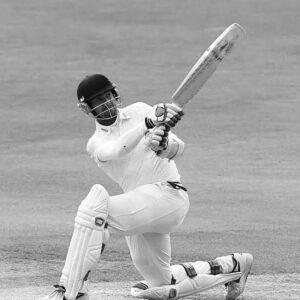
That summer was tough. I had to play for the Second XI, and it tested my character. But when it ended, I decided to embark on a journey that would lead me to play for England just 8–9 months later.
I flew to Australia for a full winter of cricket and promised myself that I’d come back better than the version of me who left Heathrow on that rainy October day.
I ate, slept, and breathed cricket for six months. I worked relentlessly on my skills and fitness—realizing talent alone wouldn’t be enough if I truly wanted to play for England.
By the time the new summer began, I was batting at No. 3 for Middlesex with clarity and focus. By the end of May, I was England’s leading run-scorer, and in June, I got the England call-up. I was ecstatic—and so were my family. I could hardly believe what I’d achieved through pure hard work and an obsession with my process.

Transitioning to Mentorship
After years of playing at the highest level, you’re now partnering with Danube Cricket Academy to coach and mentor young players. What inspired this move, and how do you see yourself influencing the next generation of cricketers?
Once you’ve played cricket at the highest level, you understand what it takes to get there. Looking back, I had a lot of different coaches—but if I’d had a mentor, someone who had already made the journey, perhaps my path would’ve been easier and clearer.
So when the opportunity arose to work with Danube Cricket Academy, it just made sense. I wanted to make myself available to aspiring young cricketers in the UAE. If there are kids who dream of reaching the top, I can guide them. I know what it takes to handle the setbacks—and how to process success.
Too many aspiring athletes don’t yet grasp the difference between “wanting” to be a cricketer and the actual journey of becoming a professional. This is my way of giving back to the game I love and helping these kids navigate that path.
The Mental Side of the Game
How did you manage the highs and lows of professional cricket, and what advice would you give young players trying to build mental strength?
You’ve got to understand that having a bad day doesn’t make you a bad player. It doesn’t mean you aren’t good enough. It doesn’t mean you should spiral into self-doubt.
Failure is part of sport. The key is to understand why you failed and to fix it the next time. And the magic word? Belief. You must believe in your ability—that belief comes from success and knowing you’re capable of producing the goods again, especially under pressure.
Those who get too low in failure and too high in success never find consistency because they can’t find peace within themselves.
The best lesson I learned was to stay humble (yet confident). Don’t get too down when you fail, and don’t get carried away when you succeed.
I had the opportunity to play with greats like Jacques Kallis, Kevin Pietersen, and Ricky Ponting. All three were the same—whether they failed or succeeded.
Training the Next Generation
What key modern-day skills do young cricketers need to develop to stay ahead, and how does Danube Cricket Academy plan to nurture those?
The game has evolved drastically over the past 20 years—and it will continue to evolve.
It’s vital to build strong fundamentals while also staying current with the modern game. Today’s young cricketer’s have grown up watching T20 cricket. For them, hitting the first ball for six feels thrilling, not reckless.
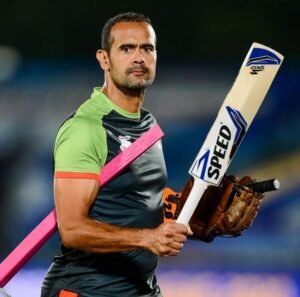
It’s no surprise—they watch so much T20 on TV and naturally want to emulate their heroes. As a former international cricketer turned coach, it’s my job to blend the old-school basics with the modern attacking style.
We teach them sound fundamentals in batting and bowling, and from there, we allow them to play with freedom and flair. It’s about maintaining a balance—keeping up with the times while respecting the basics.
If there are kids who dream of reaching the top, I can guide them. I know what it takes to handle the setbacks—and how to process success.
Alternative Life
If you could have chosen any other sport to pursue professionally, what would it have been and why?
It would’ve been either golf or Formula One.

I play a lot of golf—I love the sport. There’s still something incredibly satisfying about striking a ball cleanly and seeing it go exactly where you intended.
As for Formula One, I got into it about a decade ago. Secretly, I love driving fast—so being an F1 driver would’ve quenched that thirst in a big way every time I got behind the wheel.





